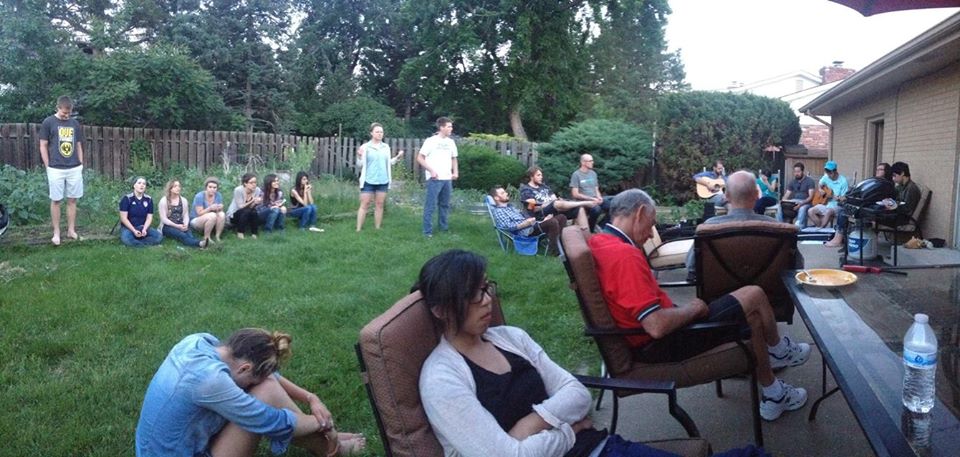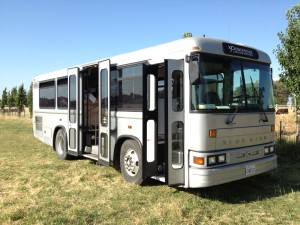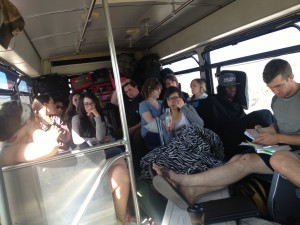Words. They carry so much weight, so much meaning. But then, there are the times when words lose their value, often due to overuse, or even misuse. Risk is one of those words. In fact, when I searched for this word on the Internet, the first result was the Parker Brothers board game. And that’s what “risk” means for a lot of people—little more than a game.
Risk is the potential of losing something of value, weighed against the potential to gain something of value.
This is another definition that I found. And this is where I shall begin.
The power of risk is one of the most dangerous powers in the universe, in both a positive and negative sense of the word. Few things in life carry the power to make our hearts open and alive or closed and constrained on both sides of the same coin.
Risk itself communicates that each one of us have things that we value. We’re not always aware of this reality, especially when we make statements such as, “I have nothing to lose and everything to gain.” I think that most of the time when I make statements like this, I really mean, “I have a lot to lose, but the thought of what I could potentially gain washes the fear from my heart.”
When our hearts have been crushed one too many times, we tend to move through life tricking ourselves into believing that we value and love nothing. We train ourselves not to love, due to the potential of pain, but our hearts cannot keep themselves from finding things to hold on to, to taking risks and chances and a variety of other things.
And it’s crazy to think that God, the very author and initiator of love, chose to make Himself vulnerable to risk by creating humanity with free will. That He took the thing that He valued most and created in their hearts the capability to walk away from Him. The power to choose is foundational to the capacity to love, and this choice cannot happen apart from risk.
Risk: an act that carries the potential to make our hearts come fully alive, weighed against the reality that the same act could wound us in the worst way possible.
Clearly, there are different levels of risk, and my definition is taking things to one extreme of the spectrum, but I have found that even some of the “smaller” risks that I’ve taken have opened the door to great aliveness or great pain.
These realities terrify us far more often than most of us care to admit. One of the reasons for this is because humanity is hard-wired to crave feelings of aliveness. Which brings us to another reality: that it’s possible to live dead. Not the spiritual maxim of “dying to self”, but the action of living from somewhere else than the center of your heart, which is a type of death in every sense of the word.
I believe that we were created to risk—in ways both large and small—because we were created in the image of a God who took the ultimate risk when He created us the way He did—namely, with a free will. And the greatest enemy of risk is not “living dead”, as some might thing. Because when you’re dead, you know it. You may not have thoughts of “I’m dead”, but you will likely have thoughts that add up to something along the lines of, “I’m not living up to the full potential that I was created for; there must be more.”
Therefore, the great enemy of risk is not deadness, but something I refer to as pseudo risk. The term pseudo itself infers that something is not real, but it has the appearance of being real. Pseudo risk is action that carries the appearance of risk, but is not risk in its pure form. Before I begin to unpack what that means to me, let me first state that I believe the highest form of risk is emotional risk. There are essentially two forms of risk, physical risk and emotional risk. The first of these involves putting your life on the line; the latter, putting your heart on the line.
Emotional risk looks like pealing back the layers of your soul and sharing your deepest, most radical dreams, hopes, and ambitions with another, or perhaps walking across a crowded room to share the Gospel with someone. These may appear at first glance to be examples of both large and small emotional risk, but I am discovering that the risks we deem small are often more powerful and have more potential to damage us than the risks we deem big. For example, if I were to share the Gospel with someone and they completely shut me down, my first instinct is to tell myself something along the lines of “They aren’t rejecting me; they’re rejecting Jesus.” This may make me feel better, but it’s really just an attempt to detach my heart from the action of risk, which actually turns my risk into a pseudo risk. Ironically, this act of detachment can actually be what triggers the rejection. If I’m communicating the very thing that has made my heart come alive and turned my world upside down to another, but completely detach my heart from that communication, why would they want to open up their hearts and receive what I’m saying? In that instance, it’s actually quite possible that they aren’t rejecting Jesus at all, but simply my presentation of Him. If this cycle continues to repeat itself, it’s very possible that I’ll shut down to taking this risk altogether, or only take this risk in the form of a pseudo risk. Small risks can make a huge impact on our hearts, not to mention the hearts of others.
Pseudo emotional risk is a tricky strategy to make us live for less than our lives were intended for. But there is a more obvious (yet still subtle) form of pseudo risk that often holds us back. This risk is physical risk. Physical risk looks like binge drinking through the night, hiking along the edge of a canyon with little footing, shooting Heroin or some other illicit drug, jumping out of an airplane at 10,000 feet, or swallowing an entire bottle of painkillers in a few gulps.
I know, I know, it may appear that I’ve gone a bit mad with these analogies, but hear me out, because there is a reason why I mixed adventurous activity with clearly destructive behavior. In the same way that an addict or an alcoholic will tell you, “I just wanted to feel something”, the same could be true about the adventure enthusiast who embarks on a dangerous hike or goes skydiving. I am in no way singling out all such activity as pseudo risk, though it is certainly a physical risk for sure. Instead, I am attempting to dig a little deeper than the surface level, to the hidden intentions behind our actions. In the same way that the drug addict wants to feel something without engaging their heart in the process of emotional risk, the skydiver can jump out of an airplane with the exact same intention, and actually be completely unaware that they are engaging in the same pseudo risk.
To reel back in proper perspective, not everyone who goes skydiving or engages in an adventure sport is operating in pseudo risk. I don’t know the thoughts and intentions of each person’s hearts; all I know is what I have seen in my own life and the clues that others give through their words. What I am instead attempting to unpack is the reality that we are sometimes more afraid of emotional risk than we are death. And in this case, I don’t mean death of heart, but physical death itself.
It’s crazy to think that we carry the capacity to put our lives on the brink of death, craving that feeling of aliveness, willing to risk our very selves to feel it again, while we at the same time run a hundred miles in the opposite direction of opening our hearts up to emotional risk. Pseudo risk offers a false form of aliveness, but it’s a fleeting one. True aliveness comes when we risk, when we open up our hearts to the potential of being healed or hurt. You can jump out of a plane without putting your heart on the line, but you can’t share your most reckless dreams or darkest secrets without doing this.
We were created to risk, because we were created in the image of a God who took the initial risk when He created us with the capability to walk away from Him, and continues to risk when He pursues us. Even saying “yes” to God is a risk in itself, because one must let go of everything they’ve held on to to receive the life that He offers. Theologically speaking, this is referred to as “losing your life to find it” (Matthew 10:39, 16:25), but it’s actually one of the greatest emotional risks we can take.
What do you need to risk today?




